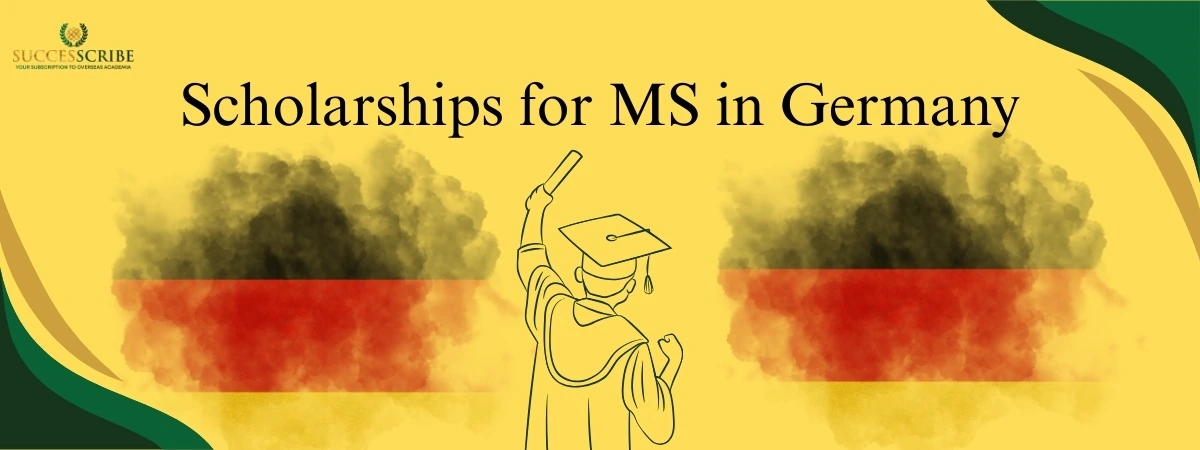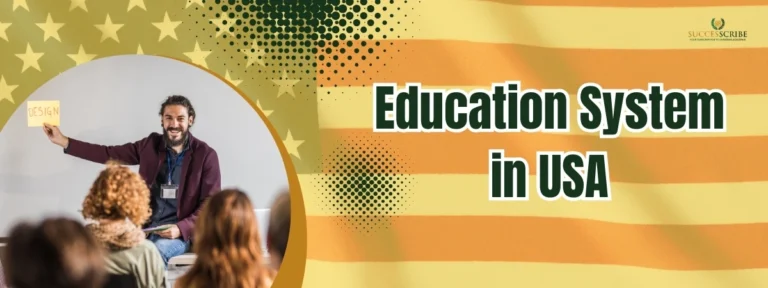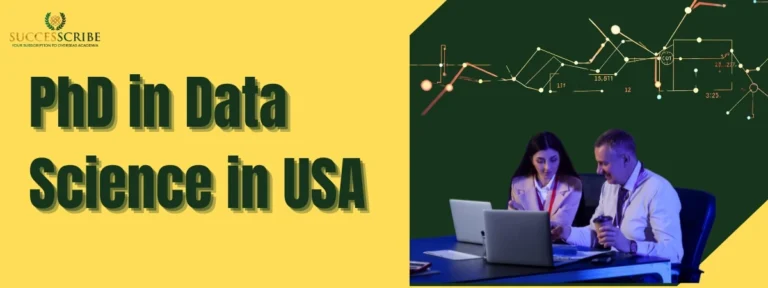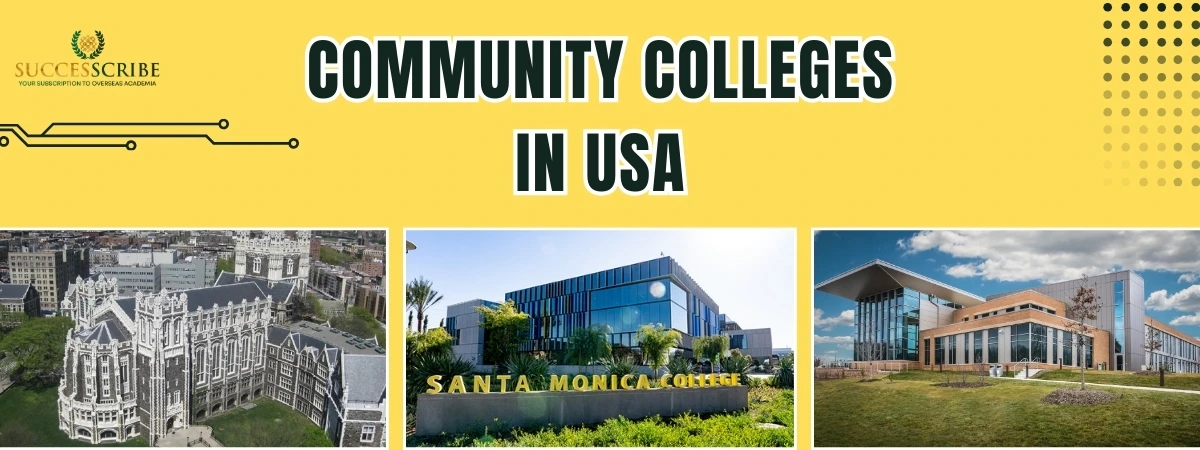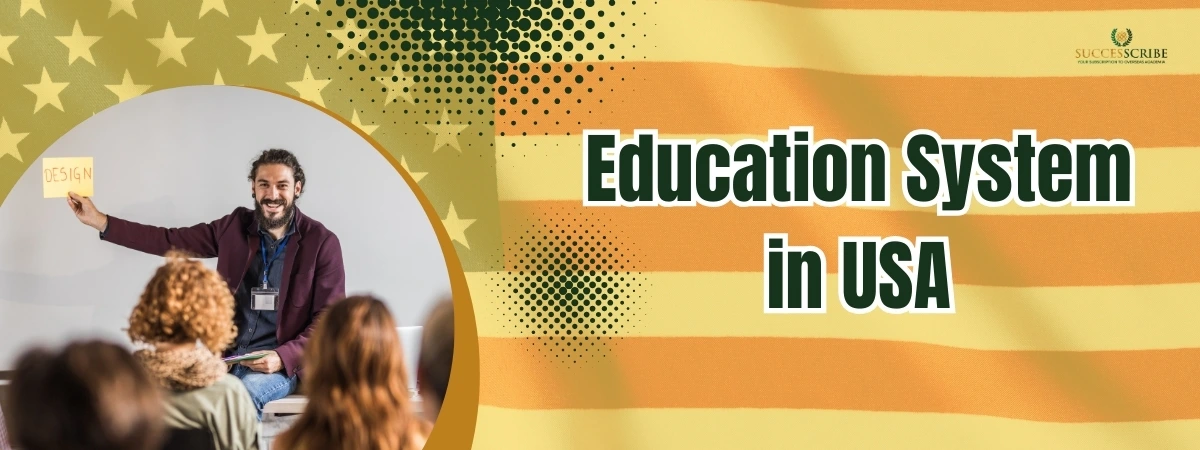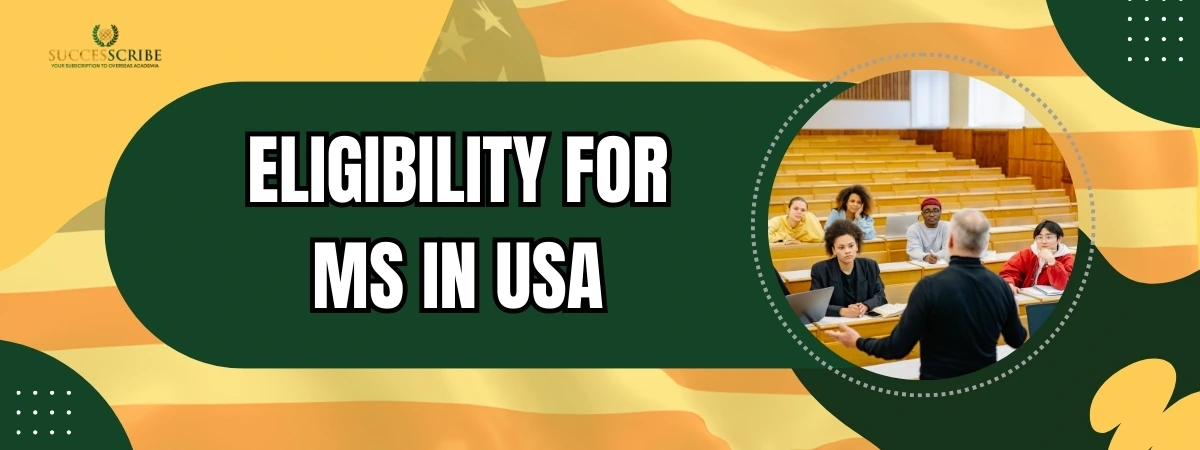Germany has become a top destination for international master’s students, with over 140,000 postgraduates, many studying tuition-free at public universities. But beyond free education, Germany offers 2,000+ scholarships every year, covering up to €1,200/month for living costs, research, and travel.
Whether you’re from India, Brazil, or Nigeria, scholarships like DAAD, Erasmus Mundus, and Deutschlandstipendium make world-class education accessible. Scholarships for MS in Germany offered by government bodies like DAAD and Deutschlandstipendium play a crucial role in supporting talented students from around the world. In this topic, we break down the top providers, benefits, deadlines, and success strategies all backed by data to help you secure your MS funding in Germany.
Major Scholarship Providers for MS in Germany
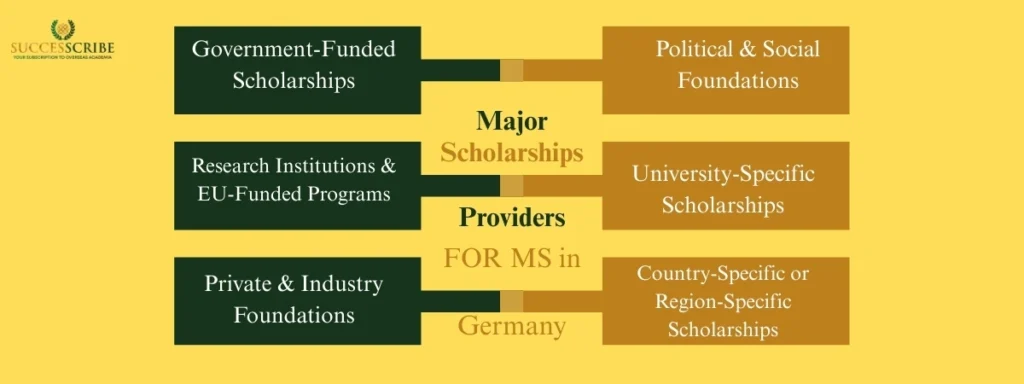
Germany offers a wide range of scholarships through government bodies, foundations, universities, and private organizations. Below is an expanded and updated list of the most prominent scholarship providers for international students pursuing a Master’s in Germany.
1. Government-Funded Scholarships
| Scholarship Provider | Benefits | Eligibility | Application Deadline |
| DAAD Scholarship | €934/month + travel + insurance + study subsidy | Bachelor’s degree, 2+ years work experience, excellent academic performance | Aug–Oct (Varies by program) |
| Deutschlandstipendium | €300/month (shared by govt. & sponsors) | Enrolled in a German university, academic excellence | Varies by university |
| KAAD Scholarships | Full funding: tuition, living costs, travel, insurance | From developing countries, Catholic, with professional experience | Jan 15 & June 30 |
| Bavarian Government Scholarships (BayBIDS) | €500–€850/month | Students from Eastern Europe, Central Asia, studying in Bavaria | May–June |
| Hessisches Ministerium Scholarships | Tuition fee waivers + €500–€1,000/month | Students at Hessen-based universities, usually from developing countries | Varies |
| Hamburg Merit Scholarship | €850/month | Enrolled at a Hamburg-based university, excellent GPA | March 1 & Sept 1 |
| PROMOS Scholarship (DAAD) | €350–€550/month for mobility | Students doing thesis or internships abroad (while enrolled in German university) | 2 cycles/year |
2. Political & Social Foundations
| Scholarship Provider | Benefits | Eligibility | Application Deadline |
| Heinrich Böll Foundation | €934/month + allowances | High academic merit, green values, active citizenship | March 1 & Sept 1 |
| Konrad-Adenauer-Stiftung (KAS) | €861/month + family & health benefits | Strong academics + political/social commitment | July 15 annually |
| Friedrich Ebert Stiftung (FES) | €934/month + travel & health support | Socially committed, excellent GPA, international students | Rolling |
| Rosa Luxemburg Stiftung | €850/month + project support | Politically engaged, academic excellence | Oct 1 annually |
| Friedrich Naumann Foundation | €861/month + allowances | Commitment to liberal values, good academic standing | Oct 31 annually |
| Hans Böckler Foundation | €1,000–€1,200/month + project funding | Union-linked or socially active students | Spring/Fall application rounds |
3. Research Institutions & EU-Funded Programs
| Scholarship Provider | Benefits | Eligibility | Application Deadline |
| Erasmus Mundus Joint Masters | €1,000/month + tuition, travel, installation | Enrolled in Erasmus Mundus Joint Program | Oct–Jan (varies by course) |
| Marie Skłodowska-Curie Fellowships | €1,500–€2,000/month | Research-based MS/PhD, EU-funded mobility | Varies by host project |
| Humboldt Research Fellowship | €1,800/month + research funds | For students pursuing post-MS research in Germany | Rolling |
| Helmholtz Association | €1,800–€2,400/month | Research in STEM, internships, fellowships | Varie |
| Leibniz Association | Research internship + monthly stipend (varies) | Students in natural sciences or economics | Program-specific deadlines |
4. University-Specific Scholarships
| University / Foundation | Scholarship Name | Benefits | Eligibility |
| Goethe University Frankfurt | Goethe Goes Global | €1,000/month | International students for selected MS programs |
| Technical University of Munich (TUM) | TUM Scholarship for International Students | €500–€1,500/semester | Merit + financial need |
| RWTH Aachen | RWTH Scholarhips | Partial tuition + research allowance | Enrolled in RWTH master’s program |
| Hochschule Hof | Hof University Scholarship | €100–€659/month | Needy international students |
| Cologne Business School (CBS) | CBS Scholarship | Up to 50% tuition waiver | Academic merit + motivation |
| HTW Berlin | PROMOS, DAAD & other internal awards | Up to €720/month | Academic performance + project purpose |
| Hochschule Bonn-Rhein-Sieg | STIBET Scholarships | €300–€700/month | Support for thesis-writing MS students |
5. Private & Industry Foundations
| Provider / Foundation | Benefits | Eligibility | Field Focus |
| SBW Berlin Scholarship | Full funding: tuition + housing + stipend | Low-income background, strong academics | All disciplines |
| Bayer Foundation Fellowship | €800–€1,500/month | STEM research internships or study | Life sciences, engineering |
| RISE Germany – DAAD | €934/month + travel & insurance | Research internships for early MS students | STEM fields |
| ESMT Berlin – Women in Business | €5,000–€10,000 | Women applying to MS or MBA | Business, Management |
| WHU – Otto Beisheim School | WHU Excellence Scholarship | €2,000–€5,000 | Outstanding students |
| Reinhold Maier Stiftung | €900/month + travel | Civic engagement + strong academic track | All fields |
6. Country-Specific or Region-Specific Scholarships
| Scholarship | For Students From | Benefits | Notes |
| Inlaks Shivdasani Foundation | India | €950/month + tuition (up to €100,000) | Must have an acceptance letter |
| J N Tata Endowment | India | Loan scholarship up to ₹10 lakhs | For higher studies abroad |
| Narotam Sekhsaria Foundation | India | Merit-based loan scholarship | High-achieving Indian students |
| K.C. Mahindra Scholarship | India | Up to ₹8 lakhs | MS/PhD abroad, merit-based |
| Orange Tulip Scholarship | China, India, Vietnam, Indonesia, etc. | Partial to full tuition | Limited to partner universities |
Suggested Post: Scholarships for undergraduates in Germany
Application Timeline for Scholarships for MS in Germany
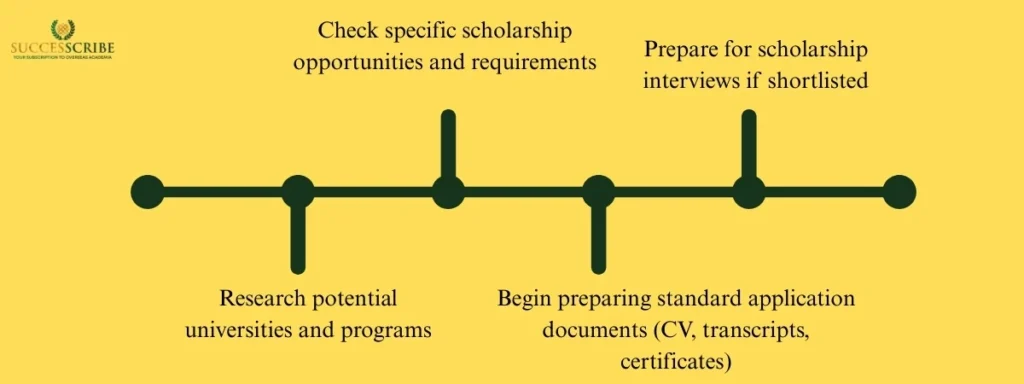
Understanding when and how to apply for Scholarships for Masters in Germany can drastically improve your chances of securing financial aid before deadlines close.
18-24 Months Before Program Start
- Research potential universities and programs
- Check specific scholarship opportunities and requirements
- Prepare for and take language proficiency tests (German and/or English)
- Begin preparing standard application documents (CV, transcripts, certificates)
12-18 Months Before Program Start
- Apply for DAAD scholarships and other major scholarship programs
- Prepare and submit university applications
- Request recommendation letters from professors and employers
6-12 Months Before Program Start
- Apply for university-specific scholarships after receiving admission offers
- Apply for country-specific and foundation scholarships
- Prepare for scholarship interviews if shortlisted
3-6 Months Before Program Start
- Apply for German student visa
- Arrange accommodation in Germany
- Apply for last-minute or emergency financial aid if needed
Suggested Post: Ludwig Maximilian University of Munich
Strategic Approach to Applications
A strategic and personalized approach is essential to stand out among thousands of applicants vying for Scholarships for MS in Germany.
- Diversify Applications: Apply to multiple scholarship programs simultaneously to increase chances of success
- Tailor Each Application: Customize personal statements and research proposals for each scholarship program
- Highlight Unique Strengths: Emphasize unusual achievements, volunteer work, or professional experience
- Follow Instructions Precisely: Adhere strictly to document formatting and submission guidelines
- Prepare for Interviews: Research the scholarship provider’s values and priorities before interviews
Tips for Crafting a Successful Scholarship Application
Your ability to present a compelling motivation letter is often the deciding factor in winning Scholarships for MS in Germany.
Personal Statement/Motivation Letter
- Clear connection between academic background and chosen program
- Specific career goals and how the program helps achieve them
- Contribution to home country or field after completing studies
- Relevant research experience or academic achievements
- Personal motivation and passion for the subject area
Research Proposal (if applicable)
- Clear research question and objectives
- Methodological approach and theoretical framework
- Relevance to current academic discourse or societal challenges
- Feasibility within program timeframe
- Potential impact of research outcomes
Letters of Recommendation
- Request letters from professors familiar with your academic work
- Provide recommenders with your CV and scholarship details
- Ask recommenders to address specific achievements relevant to the scholarship
Common Mistakes to Avoid
- Generic applications not tailored to specific scholarships
- Overlooking application deadlines or documentation requirements
- Focusing solely on academic achievements without highlighting extracurricular activities
- Poor language quality in application documents
- Unrealistic research proposals or study plans
Suggested Post: Heidelberg University admission requirements
Alternative Funding Options

Beyond traditional scholarships, several alternative funding options exist for international students in Germany:
Working During Studies
Combining part-time jobs with Scholarships for MS in Germany offers financial stability without compromising your academic goals. International students in Germany can work up to 120 full days or 240 half days per year without requiring additional work permits. The typical student job pays €10-15 per hour, allowing students to earn approximately €450-€850 monthly while studying.
| Type of Work | Average Hourly Wage (€) | Potential Monthly Income (Working 10 hours/week) |
| Research Assistant | €11-€20 | €440-€800 |
| Service Industry | €10-€14 | €400-€560 |
| Tutoring | €15-€25 | €600-€1,000 |
| Programming/IT | €15-€30 | €600-€1,200 |
Suggested Post: Technical University Berlin admission requirements
Top Fields of Study with Maximum Scholarship Opportunities
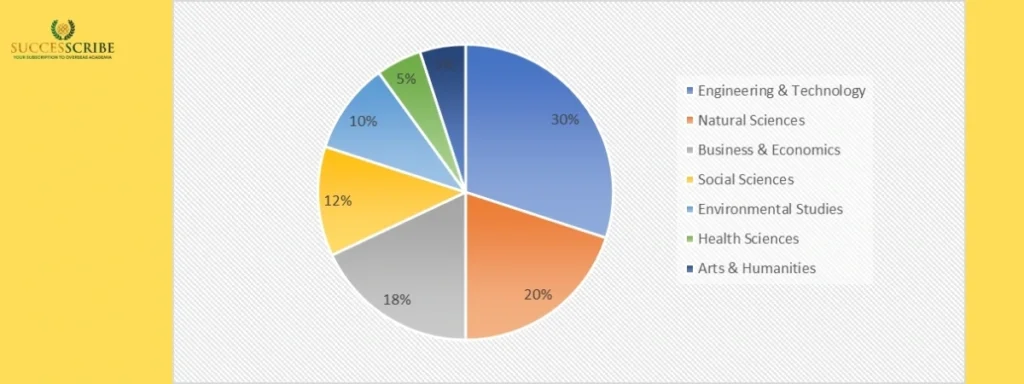
Germany allocates significant financial resources to certain academic disciplines, especially those aligning with national development goals and international cooperation. Scholarships for MS students are most readily available in the following fields:
| Field | Reason for Funding | Example Scholarships |
| STEM (Science, Tech, Engineering, Math) | High-tech and innovation drive Germany’s economy | DAAD, RISE Germany, Helmholtz Association |
| Environmental Sciences | Germany is a leader in green technology and sustainability | Heinrich Böll Foundation, Erasmus Mundus |
| Business & Economics | Demand for global business leaders | ESMT Berlin Women in Business, WHU Excellence |
| Social Sciences | Focus on civic participation, diversity, social inclusion | Rosa Luxemburg Stiftung, Friedrich Ebert Stiftung |
Approximately 60% of international MS scholarships in Germany are concentrated in STEM and Business disciplines.
Certain disciplines are prioritized when it comes to scholarship awards. The data below illustrates how DAAD and other organizations distribute scholarships by academic field:
| Field of Study | Percentage of Recipients (%) |
| Engineering & Technology | 30% |
| Natural Sciences | 20% |
| Business & Economics | 18% |
| Social Sciences | 12% |
| Environmental Studies | 10% |
| Health Sciences | 5% |
| Arts & Humanities | 5% |
Suggested Post: RWTH Aachen University admission requirements
How to Find the Right Scholarship
Many students miss out on opportunities due to lack of awareness or access. Here’s a systematic guide to finding the right scholarship for MS in Germany:
- Use Scholarship Databases:
- DAAD Scholarship Database includes over 200 funding programs.
- ScholarshipPortal.eu lists more than 1,000 EU-wide options.
- Filter by Country and Subject: Use filters like “India,” “Engineering,” or “Computer Science.”
- Bookmark and Monitor Deadlines: Most scholarships close between October and March for programs starting the following fall.
- International Offices at Universities: They publish calls for over 100+ university-specific scholarships each year.
Documents Checklist for Scholarship Applications
A strong application is only as good as the documents that support it. Below is a list of essential documents for most scholarship applications:
| Document | Purpose | Notes |
| Academic Transcripts | To validate academic performance | Certified copies required; translated into English/German |
| Curriculum Vitae (CV) | Academic, professional, and extracurricular background | Use EUROPASS format; limit to 2 pages |
| Language Proficiency Proof | English (IELTS, TOEFL) or German (TestDaF, DSH) | IELTS 6.5–7.0 or TOEFL 90+; B1 for German programs |
| Motivation Letter | Explains why you’re applying | Ideally 500–700 words; tailored to each program |
| Research Proposal (if asked) | For research-based scholarships | Typically 1,000–1,500 words |
| Recommendation Letters | Academic or professional references | 2 letters minimum, with institutional letterhead |
| Proof of Admission | Confirms your enrollment | Needed for final award disbursement |
German Language & Scholarships: Does It Help?
While many Master’s programs in Germany are taught in English, knowing German significantly improves scholarship access and integration.
Benefits:
- Increased eligibility for 40+ public and private scholarships
- Greater access to over 300,000 student job positions in Germany
- Improves chances of part-time jobs paying €12–€20/hour
Many Deutschlandstipendium and Hessisches Ministerium scholarships prefer students with A2–B1 level German, even for English-taught programs
DAAD vs Erasmus vs Private Scholarships
Germany offers some of the most diverse and generous scholarships for MS students globally.
| Criteria | DAAD | Erasmus Mundus | Private Foundations |
| Funding Coverage | Full (€934/month + tuition) | Full (€1,000/month + full tuition) | Partial–Full (€500–€1,500/month) |
| Target Audience | Global, with experience | EU-wide Joint Programs | Varies by foundation |
| Competitive Level | High (acceptance ~5%) | Very high (acceptance <3%) | Moderate–High (~10–20%) |
| Duration | 12–24 months | Full course duration | Varies |
| Additional Benefits | Insurance, alumni network | Mobility grant, global partners | Some offer mentoring/career aid |
Suggested Post: TUM admission requirements
Top Countries Receiving Scholarships for Masters in Germany (Last 5 Years)
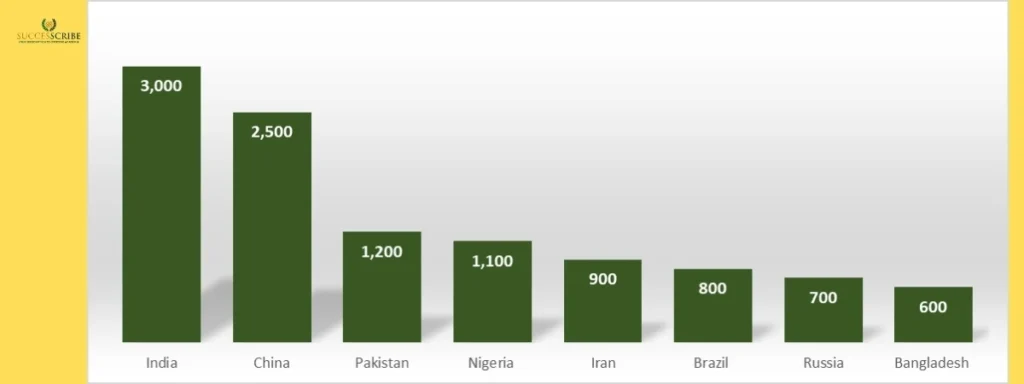
Germany remains one of the top destinations for international master’s students, and a significant number of them benefit from scholarships. Here’s a breakdown of countries with the highest scholarship recipients for MS programs in Germany over the past five years:
| Country | Avg. No. of Scholarship Recipients/Year |
| India | 3,000+ |
| China | 2,500+ |
| Pakistan | 1,200+ |
| Nigeria | 1,100+ |
| Iran | 900+ |
| Brazil | 800+ |
| Russia | 700+ |
| Bangladesh | 600+ |
India, China, and Nigeria lead the chart of students receiving Scholarships for MS in Germany, reflecting the country’s global academic appeal
Suggested Post: Scholarships for Indian students in Germany
Most Common Scholarship Amounts by Type
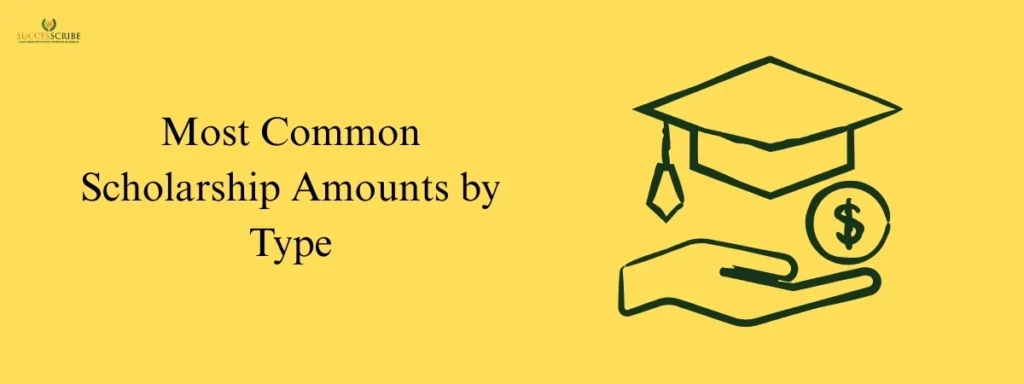
Scholarship values vary depending on the source, purpose, and discipline. The financial support from Scholarships for MS in Germany typically ranges between €300 and €1,500 per month, depending on the program and provider. Below is a comparative table of common monthly stipends and the benefits attached:
| Scholarship Type | Monthly Amount (€) | Additional Benefits |
| DAAD Scholarship | €934 | Tuition, health insurance, travel allowance |
| Erasmus Mundus | €1,000 | Full tuition, installation costs, travel |
| Deutschlandstipendium | €300 | Shared by govt. and private sponsors |
| KAS, FES, Rosa L. etc. | €850–€934 | Health, family, conference funding |
| University Grants | €500–€1,500 | Semester-based tuition or living cost aid |
| RISE Germany | €934 | Short-term stipend + insurance for interns |
Conclusion
Whether funded by the German government, political foundations, industry leaders, or universities themselves, scholarships for MS in Germany are not just about financial relief — they’re about unlocking opportunity, building global networks, and accelerating careers. The key lies in planning early, applying smart, and staying authentic throughout your application journey.
In a country where world-class education meets affordability and cultural richness, your dreams aren’t limited by borders they’re only shaped by how well you prepare. Germany is ready to invest in your potential. The question is: Are you ready to invest in yourself?
FAQs
What are the most popular scholarships for masters in Germany?
Some of the top scholarships for masters in Germany include the DAAD Scholarship (€934/month), Deutschlandstipendium (€300/month), Erasmus Mundus Joint Master Degrees, Heinrich Böll Foundation, and Konrad-Adenauer-Stiftung. Each caters to different eligibility profiles and academic fields.
Are there fully funded scholarships for MS in Germany?
Yes. Scholarships like DAAD, KAAD, SBW Berlin, and Erasmus Mundus offer full financial coverage, including tuition, living costs (up to €1,200/month), travel, insurance, and sometimes research funding.
What is the average monthly stipend offered by German MS scholarships?
Most scholarships offer stipends between €850 to €1,200 per month. For example:
I. DAAD: €934/month
II. FES: €934/month
III. Friedrich Naumann: €861/month
IV. Rosa Luxemburg: €850/month
Do I need to know German to apply for scholarships?
Not necessarily. Many scholarships support English-taught master’s programs, especially through DAAD and Erasmus Mundus. However, basic German proficiency may increase chances for certain programs or foundations.
Can I apply for multiple scholarships for MS in Germany at the same time?
Yes, and it’s encouraged. You can apply to multiple providers, including governmental, university-specific, private, and international scholarships, to maximize your chances. Just ensure you’re not violating any exclusivity clauses.
Related Post
Admission Requirements for masters in Germany
Admission Requirements for bachelors in Germany
Banks in Germany for International Students
Executive MBA without GMAT in Germany

